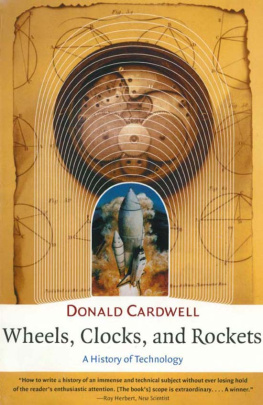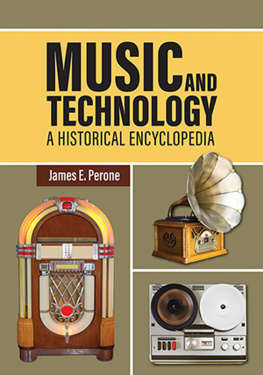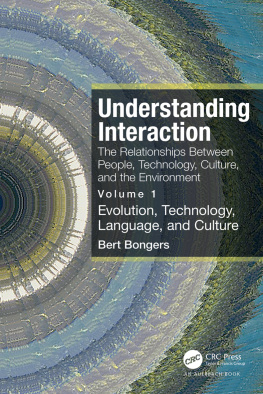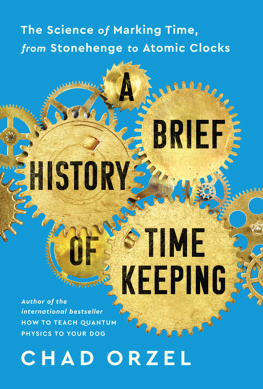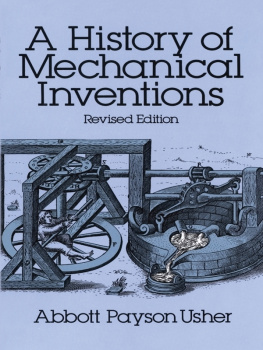
The Author
DONALD CARDWELL was Professor of the History of Science and Technology at the University of Manchester Institute of Science and Technology (UMIST) from 1974 to 1984. Between 1954 and 1956 he was on the staff of the British Association Committee on Science and Industry. He lectured in the History and Philosophy of Science at Leeds University, prior to moving to UMIST in 1963. He took a major part in the movement to establish a science museum on the UMIST campus. This has now developed into the Manchester Museum of Science and Industry. He was an Honorary Member and President (199193) of the Manchester Literary and Philosophical Society and was awarded the Dickinson Medal of the Newcomen Society (London) and the Dexter Prize and Leonardo da Vinci Medal of the Society for the History of Technology (USA).
His previous books include: The Organization of Science in England (Heinemann, 2nd edn, 1980); Steam Power in the Eighteenth Century (Sheed and Ward, 1963); From Watt to Clausius (Heinemann and Cornell University Press, 1971; reprinted, University of Iowa Press, 1989); Technology Science and History (Heinemann, 1972), published in the USA as Turning Points in Western Technology (Neale Watson Associates), as an Italian translation by Il Mulino, Bologna, and as a Japanese translation by Kawada Shobo Shinsa; and James Joule: A Biography (Manchester University Press, 1989). He also edited two books: John Dalton and the Progress of Science (Manchester University Press, 1968); and Artisan to Graduate (Manchester University Press, 1974).
The late DONALD CARDWELL was professor of the history of science and technology at the University of Manchester Institute of Science and Technology.
Copyright 1995 by Donald Cardwell
First American Edition published 1994 under the title
The Norton History of Technology
Originally published in England under the title
The Fontana History of Technology
Reissued 2001 under the title
Wheels, Clocks, and Rockets: A History of Technology
All rights reserved
ISBN 0-393-03652-9 (cl)
ISBN 0-393-31192-9 (pa)
ISBN 0-393-32175-4
ISBN 978-0-393-32175-3
ISBN 978-0-393-35252-8 (e-book)
W. W. Norton & Company, Inc.
500 Fifth Avenue, New York, N.Y. 10110
www.wwnorton.com
W. W. Norton & Company Ltd.
Castle House, 75/76 Wells Street, London WIT 3QT
In Memory of My Friends
GORDON HESLING
Consultant Paediatrician (19201989)
WILFRED FARRAR
Historian of Chemistry (19201977)
The Norton History of Science series
General Editor Roy Porter
Written by experts notable for their scholarly expertise as well as for their literary skills, these fluid and selective histories chart the origins of disciplines and their laborious development into todays complex and politically sensitive specialties.... This cogent and ambitious series will be of great use to readers with various levels of scientific literacy, but high levels of curiosity.
Booklist
Peter J. Bowler
The Earth Encompassed: A History of the Environmental Sciences
William H. Brock
The Chemical Tree: A History of Chemistry
Donald Cardwell
Wheels, Clocks, and Rockets: A History of Technology
Ivor Grattan-Guinness
The Rainbow of Mathematics: A History of the Mathematical Sciences
John North
The Norton History of Astronomy and Cosmology
Roy Porter
The Greatest Benefit to Mankind: A Medical History of Humanity
Lewis Pyenson and Susan Sheets-Pyenson
Servants of Nature: A History of Scientific Institutions, Enterprises, and Sensibilities
Roger Smith
The Norton History of the Human Sciences
PREFACE TO THE NORTON HISTORY OF SCIENCE
Academic study of the history of science has advanced dramatically, in depth and sophistication, during the last generation. More people than ever are taking courses in the history of science at all levels, from the specialized degree to the introductory survey; and, with science playing an ever more crucial part in our lives, its history commands an influential place in the media and in the public eye.
Over the past two decades particularly, scholars have developed major new interpretations of sciences history. The great bulk of such work, however, has been published in detailed research monographs and learned periodicals, and has remained hard of access, hard to interpret. Pressures of specialization have meant that few survey works have been written that have synthesized detailed research and brought out its wider significance.
It is to rectify this situation that the Norton History of Science series has been set up. Each of these wide-ranging volumes examines the history, from its roots to the present, of a particular field of science. Targeted at students and the general educated reader, their aim is to communicate, in simple and direct language intelligible to non-specialists, well-digested and vivid accounts of scientific theory and practice as viewed by the best modern scholarship. The most eminent scholars in the discipline, academics well known for their skills as communicators, have been commissioned.
The volumes in this series survey the field and offer powerful overviews. They are intended to be interpretive, though not primarily polemical. They do not pretend to a timeless, definitive quality or suppress differences of viewpoint, but are meant to be books of and for their time; their authors offer their own interpretations of contested issues as part of a wider, unified story and a coherent outlook.
Carefully avoiding a dreary recitation of facts, each volume develops a sufficient framewrok of basic information to ensure that the beginner finds his or her feet and to enable student readers to use such books as their prime course-book. They rely upon chronology as an organizing framework, while stressing the importance of themes, and avoiding the narrowness of anachronistic tunnel history. They incorporate the best up-to-the-minute research, but within a larger framework of analysis and without the need for a clutter of footnotes though an attractive feature of the volumes is their substantial bibliographical essays. Authors have been given space to amplify their arguments and to make the personalities and problems come alive. Each volume is self-contained, though authors have collaborated with each other and a certain degree of cross-referencing is indicated. Each volume covers the whole chronological span of the science in question. The prime focus is upon western science, but other scientific traditions are discussed where relevant.
This series, it is hoped, will become the key synthesis of the history of science for the next generation, interpreting the history of science for scientists, historians and the general public living in a uniquely science-orientated epoch.
ROY PORTER
Series Editor
The history of technology begins in what has been called the eotechnic age with the simplest of tools and crafts. Indeed, the history of Homo sapiens begins with the first tools that archaeologists have found and it continues through the various cultures and civilizations up to the present age of the computer and space travel. This is the longest, the most general and, it can be claimed, the most basic of all forms of secular history. It is, or at least it can easily be made, the least tainted with local, national or racial bias. Not only is the range in time enormous but the multiplicity of inventions is enormous, ranging from the simplest a drawing pin, for example to the most complicated. Any attempt to present a complete history is therefore out of the question. Selection is essential. Fortunately there are two reasonable guidelines: how important was a particular invention or series of inventions and to what extent did it stimulate other inventions or innovations. These two often, but by no means always, coincide. It is possible to have an invention that is important but that does not stimulate other inventions.
Next page
